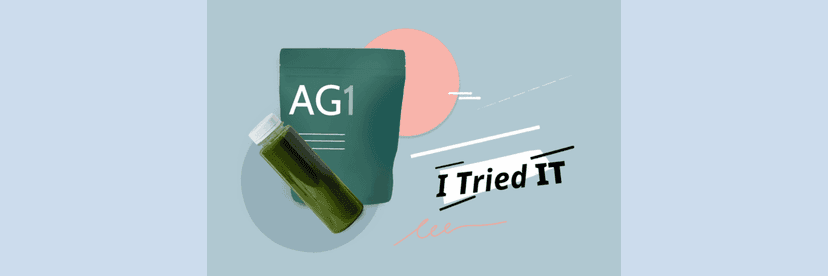In a world full of nutrition advice, it's easy to get lost. With so much information, how do you know what's true? This article will help you sort out the facts from the fiction. We'll tackle some of the biggest nutrition myths and give you clear, science-based answers.
Key Takeaways
- Carbohydrates are not bad for you; they are an important part of a balanced diet.
- Not all fats are harmful; some are essential for good health.
- Both animal and plant proteins are valuable; variety is key.
- Too much sugar is bad, but not all sugar is created equal.
- Supplements can help, but they are not always necessary.
The Truth About Carbohydrates
Understanding Different Types of Carbs
Carbohydrates often get a bad reputation, but they are a crucial part of our diet. Not all carbs are the same. There are two main types: simple and complex. Simple carbs, found in sugary snacks and sodas, can cause quick spikes in blood sugar. On the other hand, complex carbs, found in whole grains, fruits, and vegetables, provide lasting energy and essential nutrients.
The Role of Carbs in a Balanced Diet
Carbohydrates are the body's primary source of energy. They fuel our brain, muscles, and other vital organs. Including a variety of complex carbs in your diet ensures you get enough fiber, vitamins, and minerals. It's important to balance your carb intake with proteins and fats for a well-rounded diet.
Debunking Low-Carb Diet Myths
Low-carb diets often promise quick weight loss, but they can be misleading. While reducing refined carbs can be beneficial, completely cutting out carbs can lead to nutrient deficiencies and low energy levels. Instead, focus on choosing healthy, complex carbs to maintain a balanced and nutritious diet.
Fats: Friend or Foe?
Types of Dietary Fats
Fats are often misunderstood, but not all fats are created equal. There are several types of dietary fats, including saturated fats, trans fats, monounsaturated fats, and polyunsaturated fats. Each type has different effects on your health. Saturated and trans fats can increase the risk of heart disease, while monounsaturated and polyunsaturated fats are beneficial for your heart.
Health Benefits of Healthy Fats
Healthy fats, such as those found in avocados, nuts, seeds, and olive oil, are essential for overall well-being. They help in the absorption of vitamins, provide energy, and support cell growth. Including these fats in your diet can improve heart health and reduce inflammation.
Common Misconceptions About Fats
One common myth is that all fats are bad for you. This is not true. While it's important to limit saturated and trans fats, unsaturated fats are necessary for a balanced diet. Another misconception is that fat makes you fat. In reality, consuming healthy fats in moderation can help you maintain a healthy weight.
Protein Myths and Realities
Animal vs. Plant Protein
When it comes to protein sources, both animal and plant proteins have their own benefits. Animal proteins are complete proteins, meaning they contain all essential amino acids. However, plant proteins can be combined to provide a complete amino acid profile. For example, eating beans with rice gives you all the essential amino acids your body needs.
How Much Protein Do You Really Need?
The amount of protein you need depends on various factors like age, activity level, and overall health. Generally, the recommended daily allowance (RDA) for protein is 46 grams for women and 56 grams for men. Athletes and older adults may need more. It's important to get your protein from a variety of sources to ensure you're getting other essential nutrients as well.
Protein Timing and Muscle Growth
Many people believe that you need to consume protein immediately after a workout to maximize muscle growth. While post-workout protein can help, the total amount of protein you consume throughout the day is more important. Aim to spread your protein intake evenly across meals to support muscle repair and growth.
Remember, not all protein shakes are created equal. Some may contain added sugars and artificial ingredients. Always read labels and opt for high-quality products.
Sugar: The Sweet Truth
Natural vs. Added Sugars
Natural sugars are found in fruits, vegetables, and dairy products. These sugars come with essential nutrients like vitamins and fiber. Added sugars, on the other hand, are introduced during processing or preparation. They offer no nutritional value and can lead to health problems if consumed in excess.
Health Impacts of Excessive Sugar Intake
Consuming too much sugar can lead to various health issues, including obesity, type 2 diabetes, and heart disease. It's important to monitor your sugar intake and opt for natural sources whenever possible.
Debunking Sugar Detox Myths
Many believe that sugar detoxes can cleanse the body of toxins. However, the body already has a natural detox system involving the liver and kidneys. Extreme detox diets can be harmful and are often unnecessary. Instead, focus on a balanced diet to maintain overall health.
The Role of Supplements in Nutrition
When Are Supplements Necessary?
Supplements can help fill nutrient gaps, but they can't replace the benefits of a balanced diet. It's best to get nutrients from whole foods. However, some people might need supplements due to specific deficiencies or health conditions. Always consult a healthcare professional before starting any supplement.
Common Misconceptions About Multivitamins
Many believe that taking a multivitamin can replace a healthy diet. This is not true. Our bodies are designed to get nutrients from a variety of foods. Supplements should complement, not replace, a balanced diet. Focus on eating fruits, vegetables, whole grains, lean proteins, and healthy fats.
The Risks of Over-Supplementation
Taking too many supplements can be harmful. Some vitamins and minerals can build up in the body and cause health problems. It's important to follow recommended dosages and consult with a healthcare provider. Remember, more is not always better.
Every person is unique, and so are their nutrition needs. It's always a good idea to get personalized advice from a registered healthcare provider based on your specific health goals and requirements.
Organic vs. Conventional Foods
Nutritional Differences
Organic foods have become popular because people think they are healthier. However, the term "organic" mainly refers to how the food is grown, not its nutritional value. Studies show that both organic and conventional foods have similar nutrients. The key is to eat a variety of fruits and vegetables, no matter how they are grown.
Pesticide Concerns
One reason people choose organic foods is to avoid synthetic pesticides. Organic farming uses natural methods to control pests, which can result in lower pesticide residues. However, conventional foods are also safe to eat because they must meet strict safety standards. Washing fruits and vegetables can further reduce any pesticide residues.
Cost vs. Benefit Analysis
Organic foods often cost more than conventional ones. It's important to weigh the benefits against the higher price. While organic foods may have lower pesticide levels, the most important thing is to eat a balanced diet rich in fruits and vegetables, whether they are organic or not.
The best diet is one that includes a variety of foods, focusing on overall quality and balance, rather than just whether they are organic or conventional.
The Reality of Detox Diets
How the Body Naturally Detoxifies
Our bodies are equipped with their own detox systems, including the liver, kidneys, and lymphatic system. These organs work around the clock to remove waste and toxins. You don't need special diets or products to help your body detoxify. Instead, eating a balanced diet with plenty of fruits, vegetables, whole grains, and lean proteins supports these natural processes.
The Science Behind Detox Diets
Detox diets often claim to cleanse the body of toxins, but there's little scientific evidence to back these claims. Research shows that these diets are no more effective than a regular, balanced diet. In fact, many detox diets are very restrictive and can lead to nutrient deficiencies.
Health Risks of Extreme Detoxing
Extreme detox diets can be harmful. They often lack essential nutrients, which can disrupt normal body functions. Some common risks include:
- Nutrient deficiencies
- Dehydration
- Electrolyte imbalances
- Fatigue and dizziness
Instead of extreme detoxing, focus on a balanced diet to support your body's natural detox systems.
Conclusion
In a world filled with endless nutrition advice, it can be tough to know what's true and what's not. By debunking these common myths, we've aimed to clear up some of the confusion. Remember, the key to a healthy diet is balance and variety. Always look for information backed by science and don't hesitate to seek advice from health professionals. With the right knowledge, you can make better choices for your health and well-being.
Frequently Asked Questions
Are carbs bad for you?
No, carbs are not bad for you. They are an important source of energy. It's about choosing the right types of carbs, like whole grains, fruits, and vegetables.
Is eating fat going to make me gain weight?
Eating fat doesn't automatically make you gain weight. It's the type and amount of fat that matters. Healthy fats, like those from avocados and nuts, are good for you.
Do I need protein supplements to build muscle?
You don't necessarily need protein supplements to build muscle. Eating a balanced diet with enough protein from foods like meat, beans, and dairy is usually enough.
Is sugar detox a real thing?
Sugar detoxes are not necessary. Your body naturally detoxifies itself. Instead, focus on reducing added sugars and eating a balanced diet.
Are organic foods always better than conventional foods?
Organic foods are not always better than conventional foods. Both can be nutritious. The choice depends on personal preference and budget.
Do detox diets really work?
Detox diets are not needed. Your body has its own detox system. Extreme detox diets can actually be harmful. Eating a balanced diet is the best way to support your health.
























